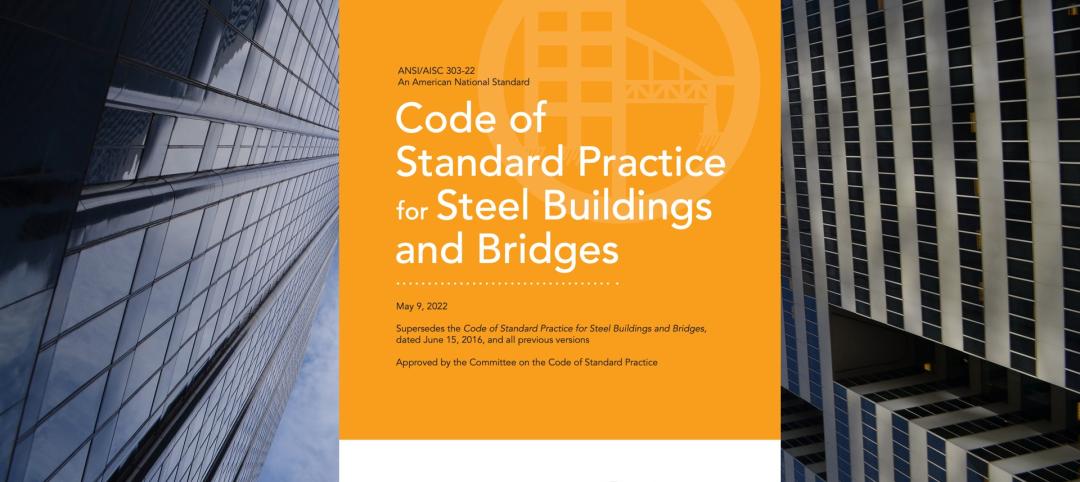The National Institute of Standards and Technology recently submitted a report to Congress outlining steps to improve building functionality after natural disasters.
The report fills a request by Congress for “immediate occupancy (IO)” building codes and performance standards strategies to make more buildings more resilient to a wide variety of hazards. Existing standards and codes focus on reducing the likelihood of significant building damage or collapse, but do not typically address the need to preserve quality of life by keeping buildings habitable and functioning as normally as possible, a NIST official says.
Some of the obstacles to making buildings more functionally resilient after a natural disaster include:
— Convincing communities to invest in IO standards in advance of the event
— Clarifying the costs and benefits
— Influencing and incentivizing private owners to make the necessary investments in their buildings
— Determining special implementation procedures for public buildings since some do not have to comply with local codes
— Dealing with the old structures that tend to house the most at-risk populations
— Determining who is liable for building performance
— Encouraging collaboration in standards development
The report says that “increasing the performance goals for buildings would not be easily achieved, but the advantages may be substantial” and making them a reality “would entail a significant shift in practice for development, construction, and maintenance or retrofit of buildings.”
Related Stories
Codes and Standards | Dec 29, 2022
New York City multifamily owners concerned over fires caused by e-bikes
In 2022, there have been nearly 200 fires and six deaths in New York City caused by lithium-ion batteries used in mobility devices such as electric bikes and scooters.
Sponsored | Resiliency | Dec 14, 2022
Flood protection: What building owners need to know to protect their properties
This course from Walter P Moore examines numerous flood protection approaches and building owner needs before delving into the flood protection process. Determining the flood resilience of a property can provide a good understanding of risk associated costs.
HVAC | Dec 13, 2022
Energy Management Institute launches online tool to connect building owners with HVAC contractors
The National Energy Management Institute Inc. (NEMI) along with the Biden administration’s Better Air in Buildings website have rolled out a resource to help building owners and managers, school districts, and other officials find HVAC contractors.
Green | Dec 9, 2022
Reaching carbon neutrality in building portfolios ranks high for organizations
Reaching carbon neutrality with their building portfolios ranks high in importance among sustainability goals for organizations responding to a Honeywell/Reuters survey of senior executives at 187 large, multinational corporations. Nearly nine in 10 respondents (87%) say that achieving carbon neutrality in their building portfolio is either extremely (58%) or somewhat (29%) important in relation to their overall ESG goals. Only 4% of respondents called it unimportant.
Green | Dec 9, 2022
Newly formed Net Zero Built Environment Council aims to decarbonize the built world
Global management consulting firm McKinsey recently launched the Net Zero Built Environment Council, a cross-sector coalition of industry stakeholders aiming to decarbonize the built world. The council’s chief goal is to collaboratively create new pathways to cut greenhouse gas emissions from buildings.
Energy Efficiency | Dec 6, 2022
Washington state’s Building Code Council mandates heat pumps in all new residential construction
The Washington State Building Code Council has voted to require heat pumps for all new residential construction starting in July 2023. The new mandate has drawn criticism over concerns that it will add costs to housing construction, especially given current supply chain challenges for heat pumps.
Geothermal Technology | Dec 6, 2022
Google spinoff uses pay-as-you-go business model to spur growth in geothermal systems
Dandelion Energy is turning to a pay-as-you-go plan similar to rooftop solar panel leasing to help property owners afford geothermal heat pump systems.
Contractors | Dec 6, 2022
Slow payments cost the construction industry $208 billion in 2022
The cost of floating payments for wages and invoices represents $208 billion in excess cost to the construction industry, a 53% increase from 2021, according to a survey by Rabbet, a provider of construction finance software.
Multifamily Housing | Dec 6, 2022
Miami-Dade County will allow accessory dwelling units
Commissioners in Miami-Dade County, Fla., recently voted to allow many single-family homeowners to rent out accessory dwelling units on their property. Many homeowners will be allowed to rent out garages, separate quarters, or detached backyard apartments if they meet certain standards including for lot size and parking.
Steel Buildings | Dec 6, 2022
2022 AISC Code of Standard Practice for Steel Buildings and Bridges released
The American Institute of Steel Construction recently released an updated revision of one of its flagship standards, the Code of Standard Practice for Steel Buildings and Bridges (ANSI/AISC 303-22). The code was last updated in 2016. The latest version is available as a free download at aisc.org/2022code.
















